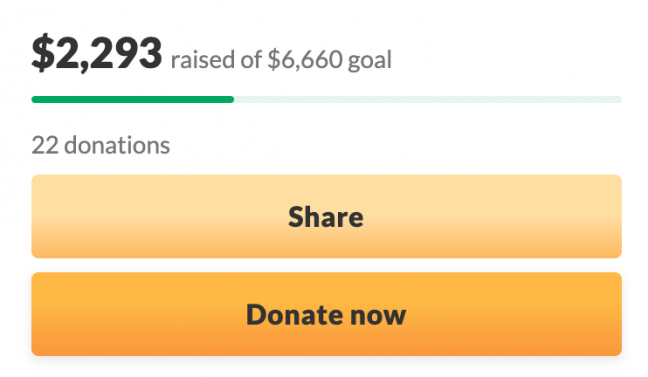University of Wisconsin Gender and Women’s Studies graduate students have started a GoFundMe to help pay for their segregated fees. Some have to choose between paying the fees to stay in school and basic living costs like rent and food, according to UW GWS graduate student Oliver DiPietro who started the GoFundMe.
All UW students pay segregated fees in addition to tuition. The fees go toward student services, programs and facilities, such as University Health Services, RecWell and the Wisconsin Union. Segregated fees for the 2021 fall semester are approximately $723.48, according to the Bursar’s office.
A group of GWS graduate students, who DiPietro called the “cohort,” said in an email statement that graduate students shouldn’t have to pay segregated fees because they are employed by UW.
“We believe that UW-Madison should cover segregated fees for all students under assistantship with the university, as many others across the country already do,” the cohort said.
In search for new UW System president, Board of Regents hires controversial firm
DiPietro said the GoFundMe started after the GWS department said they could not cover the cohort’s or DiPietro’s segregated fees. DiPietro said they believe the GWS department could not cover the segregated fees this year because of Letter and Science policy.
UW spokesperson Meredith McGlone said the students who are not taking a full credit load pay less segregated fees, based on the number of credits they are including. This includes some graduate students, particularly those at the later stages of their doctoral program. All these students still receive full access to all services funded by segregated fees.
Because segregated fees for UW graduate students are due in early December, some graduate students have to choose between paying the segregated fees or rent and food, the cohort said. Some who live paycheck-to-paycheck may have to give two-thirds back to UW.
“The department and the college at large need to invest in a feminist care practice that includes material support and doesn’t directly benefit the institution or our productivity as scholars,” the cohort said.
As of Dec. 2, the GoFundMe has accumulated $2,263 of its $6,660 goal.
McGlone said though segregated fees are charged at the beginning of the semester, UW defers the due date for graduate students to early December to allow students to earn several paychecks from their campus employment and distribute the cost of the fees over that time period.
“The university does this to reduce the impact on students,” McGlone said.
According to McGlone, UW understands graduate school can be “financially challenging” and provides resources, information and support to graduate students to avoid a financial crisis as well as for emergencies.
“To begin, the university shares information about the full cost of attendance with prospective students to help them with financial decision-making and budgeting/planning,” McGlone said. “The Graduate School and the Office of Student Financial Aid provide information about several different funding and financing options to prospective and current students, including employment opportunities, financial aid and student loans.”
For financial emergencies such as the inability to pay for food or rent, the Office of Student Financial Aid offers an emergency support request in addition to connecting students with other campus resources, such as financial aid advising, Basic Needs Support, school emergency support and the Dean of Students Office crisis loan and grant program, McGlone said.
Chancellor addresses growing class sizes, ASM votes to create two positions
The GWS wrote a letter that was endorsed by the Teaching Assistant Association (TAA), which serves as a union for graduate student workers at UW, demanding the department to cover segregated fees, in full, for all graduate students who are not covered by a fellowship.
“We believe it is the responsibility of this department to know, and fully understand, that we are not living — we are barely surviving,” the TAA executive board wrote. “Our department salaries have never been enough and these fees — that we must pay to secure our employment — are hindering us from meeting our basic needs.”
According to the letter, GWS master’s students receive a median stipend of $21,000 without taxes. Excluding costs of living such as rent, food, transportation, internet and many more, students are left with $760 on average to use for emergencies. As a result, they have had to give up on several activities and necessities including gender-affirming care, reading books, medical care, adequate clothing for Wisconsin weather and travel to home, the letter stated.
DiPietro said that in the future they would like to advocate for all grad students and workers on campus — not just graduate students in the GWS department.
“Nobody should have to choose between living and going to school,” DiPietro said. “Particularly because they are employed by the university.”
Editor’s note: This story was updated Dec. 3 at 3:38 p.m. to include statements from UW spokesperson Meredith McGlone.














